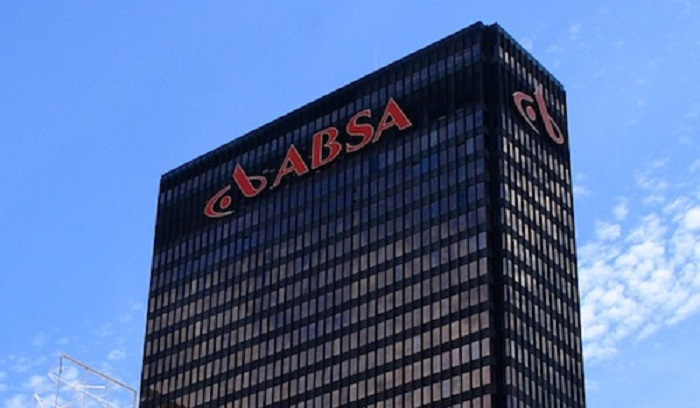Absa said a preliminary report by Public Protector Busisiwe Mkhwebane that recommends the bank pay back R2.25bn it received as part of an unlawful apartheid-era bailout is “regrettable”.
The bank said that the Davis Panel of experts appointed by former South African Reserve Bank (Sarb) governor Tito Mboweni in 2000 found that Absa’s shareholders did not derive any undue benefit from the Sarb’s intervention, and as such no claim of restitution could be pursued against Absa.
“It must be noted that the matters and events under investigation occurred during the period 1985 to 1995, 21 to 31 years ago,” the bank said in a statement.
“The testimony provided by current Absa senior executives to the public protector was based on records available to the bank’s current management, as none of them have personal knowledge of events at the time.”
The Mail & Guardian leaked the report on Friday, revealing that the Sarb, Treasury and the presidency are implicated in the report.
“Mkhwebane has provisionally found that the government breached the constitution and the Public Finance Management Act,” the weekly reported.
“However, Mkhwebane told the M&G that the report was preliminary and that she was awaiting feedback from the implicated parties – ‘information which might change the final report drastically’.
As such, Absa said it “is regrettable that the public protector’s report has been leaked before further submissions and finalisation, because in its current form it perpetuates an incorrect view that Absa Bank was the beneficiary of undue SA Reserve Bank assistance”.
Absa has documents the public protector needs to see
Absa said the public protector has been invited to inspect confidential documents in its possession pertinent to the successful finalisation of the investigation.
“These documents pertain to, among others, due diligence performed by Absa prior to acquiring Bankorp.
“Bankorp started receiving SA Reserve Bank assistance in 1985,” it said. “Absa acquired Bankorp in April 1992 at fair value. All the obligations pertaining to the SA Reserve Bank’s assistance were discharged in full by October 1995.
“We have written to the public protector informing her that we accept her invitation to make further submissions in terms of the Public Protector Act,” the bank said.
“These submissions will correct several factual and legal inaccuracies that are contained in the provisional report. This will be done on or before the deadline of February 28 2017.”
Restitution from the beneficiaries may be sought – panel
The Bankorp saga has been an ongoing thorn in Absa’s side. In June 15 2000, the Sarb governor appointed the Davis Panel to investigate the matter.
Explaining the background, the panel said: “From 1985 to 1992 the South African Reserve Bank provided assistance to Bankorp and, for the period 1992 to 1995, to its new owner, Absa. After the existence of that assistance belatedly became public knowledge, its nature and validity became the subject of controversy which was not resolved.”
The Davis Panel report concluded that “although the decision to provide financial assistance to Bankorp was, for that reason, justified, the form and structure of Reserve Bank assistance to Bankorp over a decade from 1985 (including its continuation in the form of assistance to Absa) was seriously flawed, when considered as a whole”.
It said the assistance was flawed for many reasons, which included the “continuing secrecy with which the assistance was covered”.
“These flaws in the Reserve Bank’s methods of assistance to Bankorp/Absa are, in total, serious. In the panel’s opinion the provision of a grant, using a simulated transaction, imply that the Reserve Bank acted outside its statutory powers.
“It is the view of the panel that in principle restitution from the beneficiaries may be sought but that it is impractical to do so.”
Financial crisis of a very grave kind
Writing on the matter, former UCT politics professor Hermann Giliomee wrote that “the gravity of the bank’s troubles, occurring at a point where the political system faced its greatest political crisis, was not the only reason for the intense speculation about the issue”.
“Adding flavour was the fact that Afrikaner nationalists headed up the three institutions involved, namely (the) South African government, the Reserve Bank and Sanlam,” he wrote on Politics Web in 2013.
“The crisis was greatly exacerbated by (former SA president) PW Botha’s Rubicon speech in August 1985 that had put a damper on the expectations of major political reforms.
“As a result, foreign banks refused to roll over its short-term loans to South Africa, forcing the government to declare a unilateral moratorium on the repayment of foreign debt.
“The Bankorp crisis, seen within the context of the debt standstill, represented a financial crisis of a very grave kind. The loss of billions of deposits would have had a major domino effect on the other banks and business. It would have plunged the country in a severe systemic financial crisis at the very point that the political crisis had reached its culmination.”
Reporting by
[Source: News24]





 WhatsApp us
WhatsApp us 

